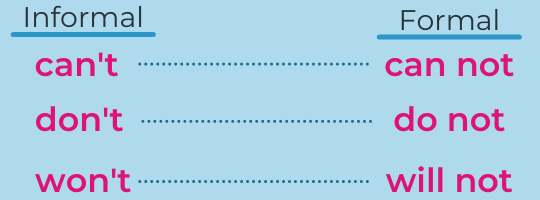
How to Inflect a Formal Tone in Writing (And Why!)

Although a relatable, conversational tone is favored in a lot of companies’ messaging today, there’s still a large need for formal writing. Say your brand wants to target the highly acclaimed professional audience. If so, a formal tone will be most fitting. However, don’t just jump into formal writing without first knowing what that means. To keep a formal tone in your content, follow these simple guidelines.
- Always Use Third-person
Formal writing is not always a familiar style for writers, but using first-person is far more personal than what is appropriate for a formal piece. Staying away from using “I,” “me,” and “you” is the first step to setting your piece in a formal tone.
- Stay Away from Contractions
Contractions make our lives easier, but they shouldn’t be used in a formal piece. (Yes, that means using “it is” instead of “it’s'”.) If you need to use any abbreviations, it’s important to spell out the first instance, following that with the abbreviation in parenthesis. This will give your reader context for the abbreviation in the following uses.

- Keep to the Point
Staying focused without getting lost in tangents is critical to ensure your writing is clear and articulate. That’s particularly important in blog posts. Rambling shows readers you aren’t familiar with the topic, but staying on point contributes to a sense of confidence in the writing. Try focusing on one detailed topic instead of a one large, all-encompassing topic. Focusing on one thing at a time helps you direct the reader’s attention exactly where you want it.
- Define Your Writing Style and Be Consistent
The consistency of your brand is extremely important. You want to make sure that all content follows the same guidelines and personality. If you’ve chosen a more formal tone, let that tone resonate in all aspects of your marketing.
Where You Should Use It
If you’re not sure a formal writing style is right for your brand, remember that it is most often used when addressing academic or professional audiences. Here are some examples of where it’s commonly used in content marketing:
- White Papers. Similar to a blog post, but often used for more informational purposes, white papers are the right place to show off your professional writing skills.
- Case Studies. A formal study to exhibit a brand or agency’s success with strategies, services, or marketing practices, case studies relay business information. Therefore, they should a formal tone.
- eBooks. Like any writing, this depends on your audience. However, eBooks designed for educational purposes will be most effective when written formally.
- University Blogs. Opting for an educational tone, university blogs often choose to highlight the school’s commitment to academic learning via formal writing.
- Academic Writing. Formal tone should be used to convey authority and knowledge.
- Corporation & Nonprofit Websites. Many larger companies and nonprofits prefer a formal writing tone, making their website copy the perfect place to enlist in your professional writing skills.
Informal Tone
There is a time and a place for an informal tone. Informal tone, also known as informal writing, is understood as using a casual tone. The use of colloquial language is considered informal tone-such as slang, abbreviations, and relaying subjective experiences.
Informal writing is something we encounter daily- texts to your friends, notes, and social media captions. It is used in our everyday speech.

The Importance of Tone
In traditional marketing, the pitchman was in front of an audience, helping shape the brand through body language, facial expressions, and tone. Today, we are able to reach audiences all around the world. However, this ability brings new obstacles along with it. We have all heard (and probably experienced) how written word can be taken out of context and misinterpreted, therefore, word choice can be imperative.
The beauty of writing formally is that is leaves no room for misinterpretation. Because there’s typically no humor, creativity, or other styles present, you’re able to communicate clearly, effectively, and to the point.
Get Started
Whether you’re looking for compelling writing that’s formal, casual, or downright creative, the content experts and editors from Content Writers are ready to get started. Contact us today to get your content strategy in motion.




